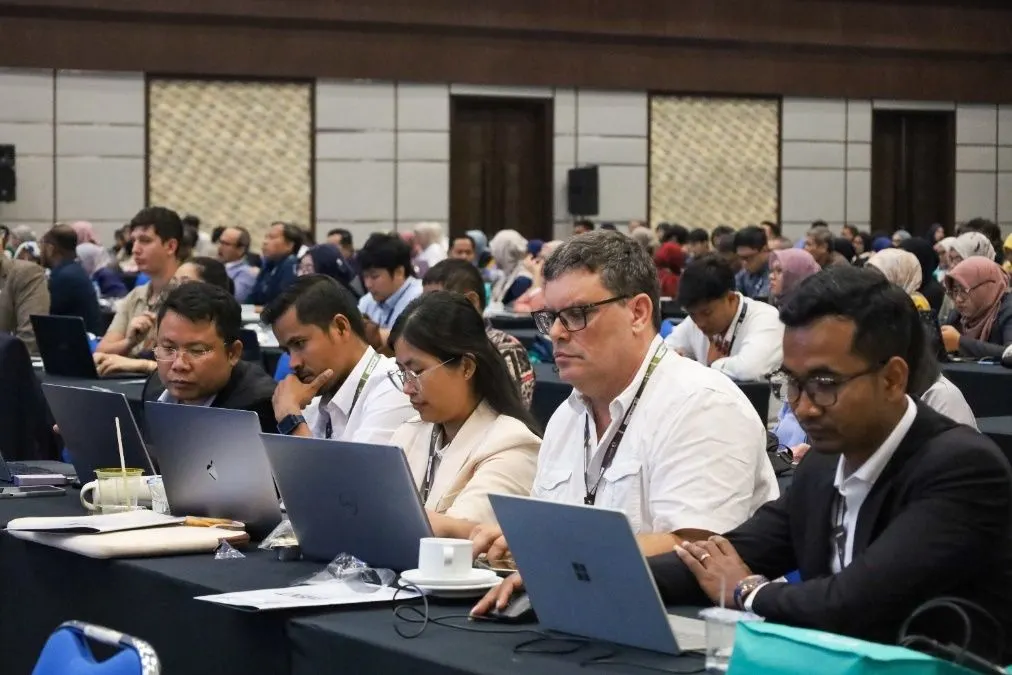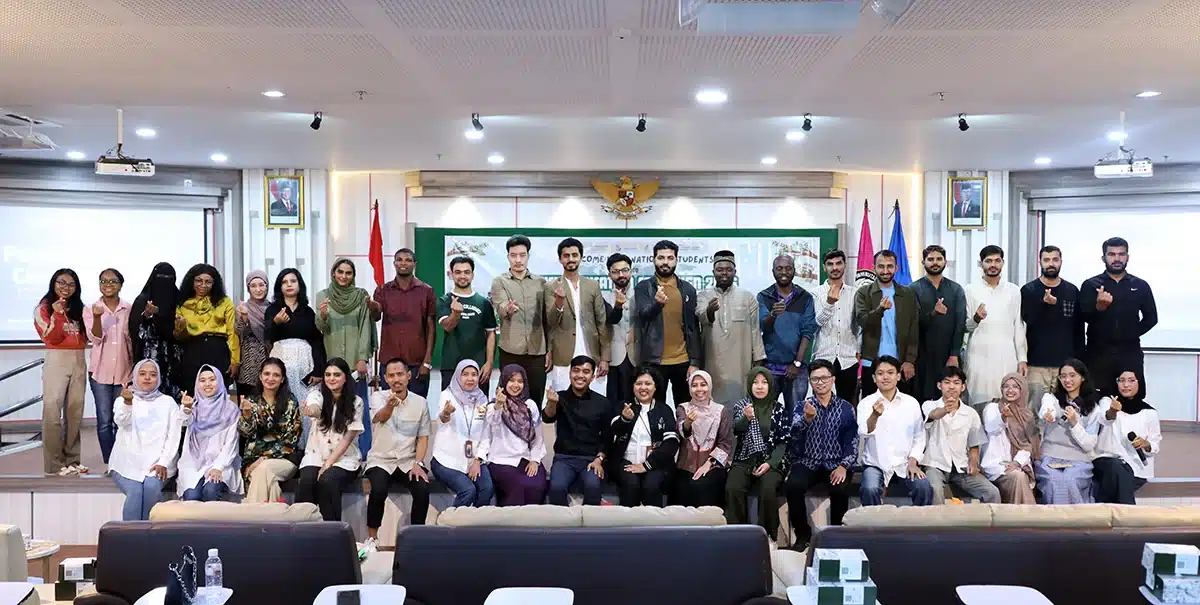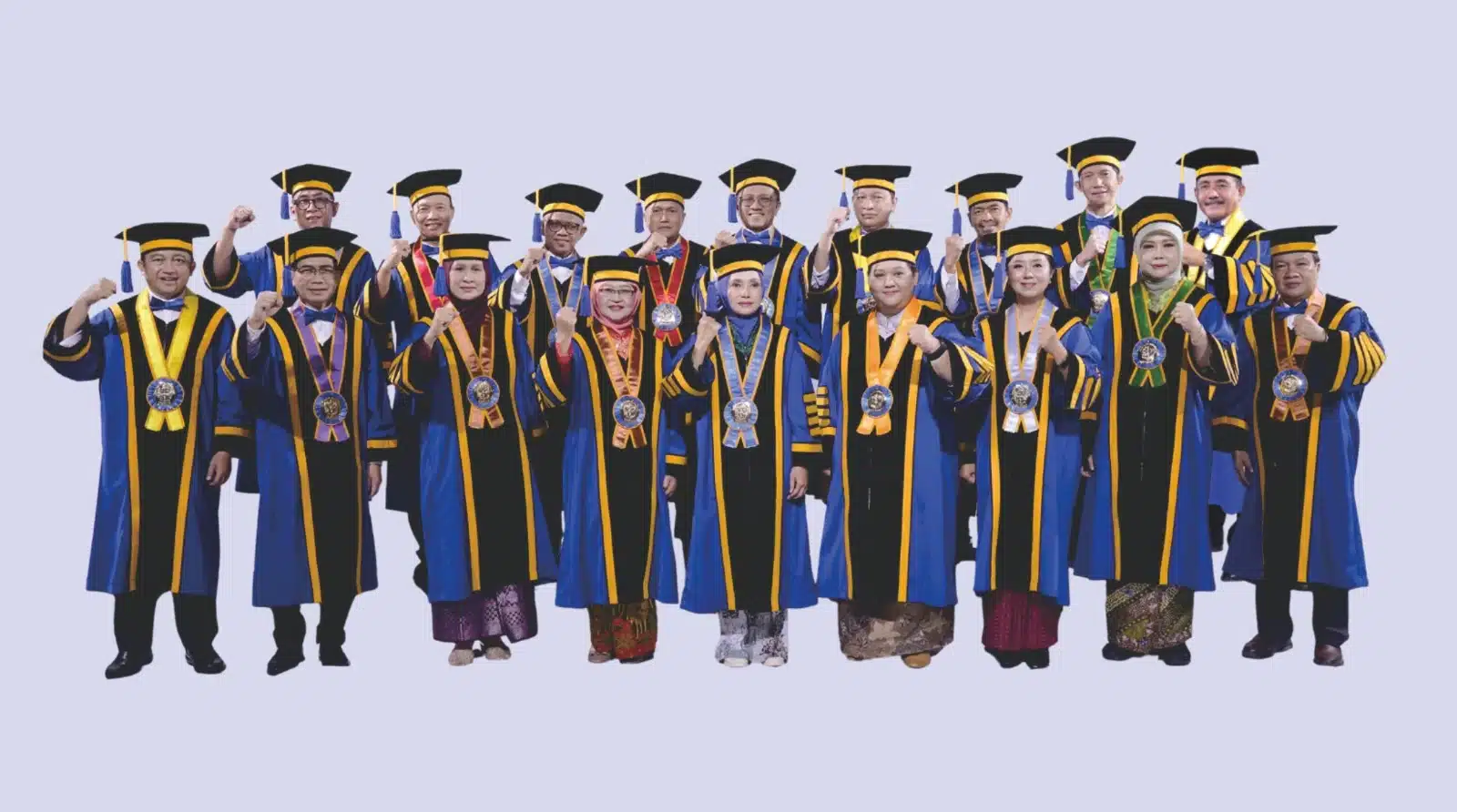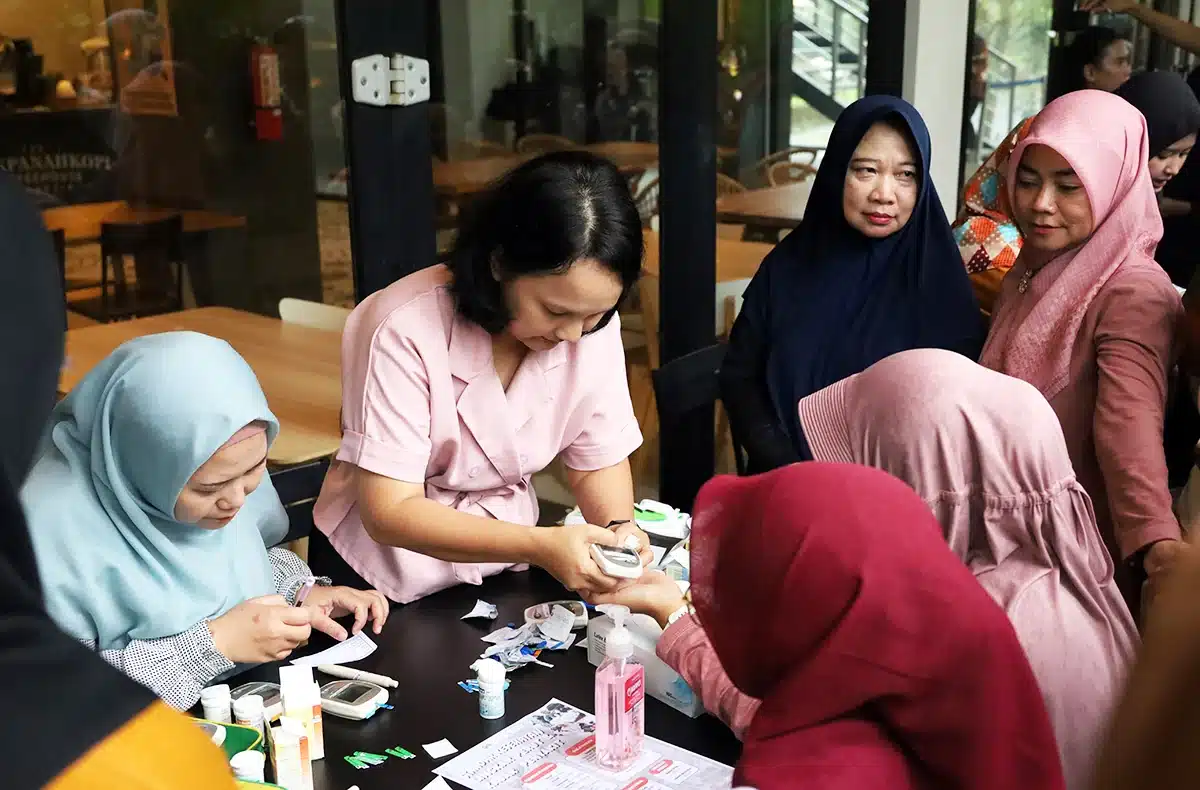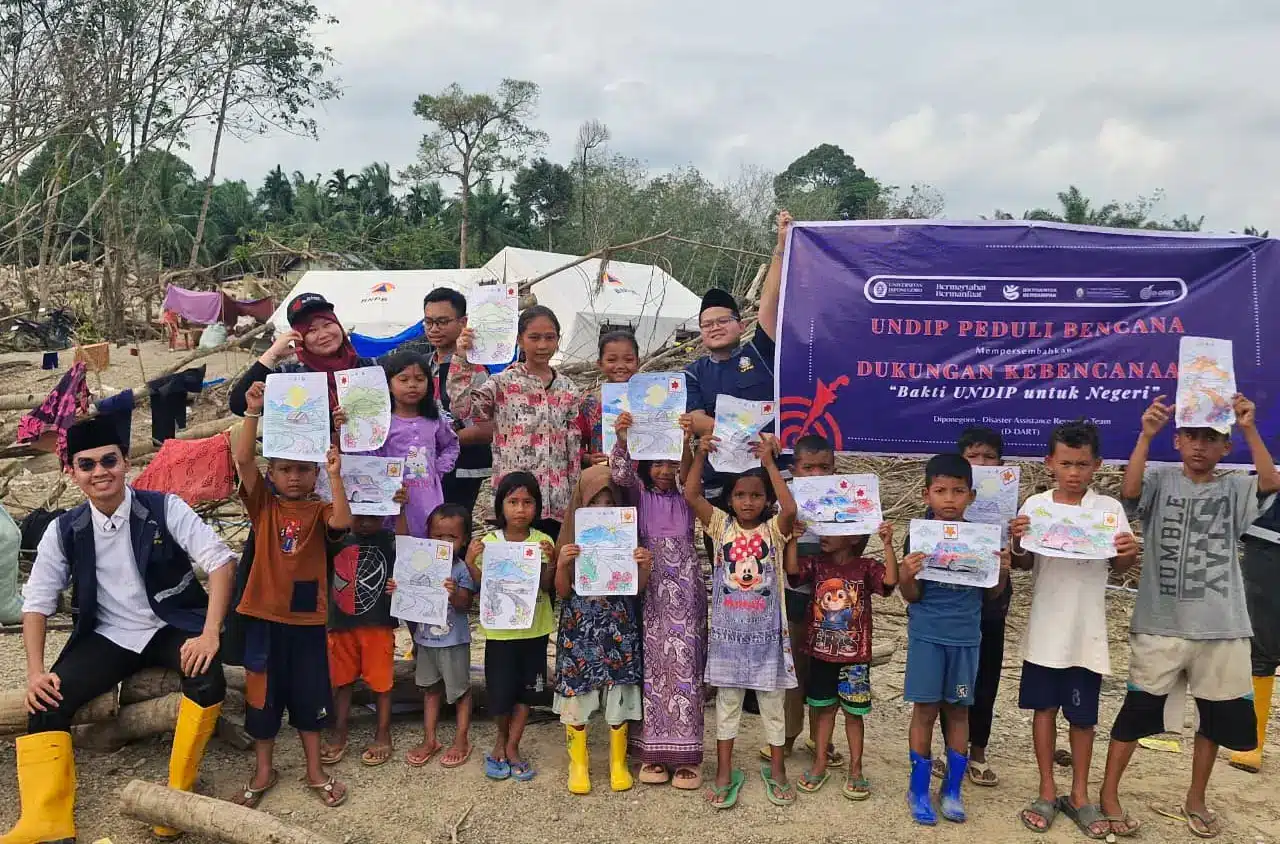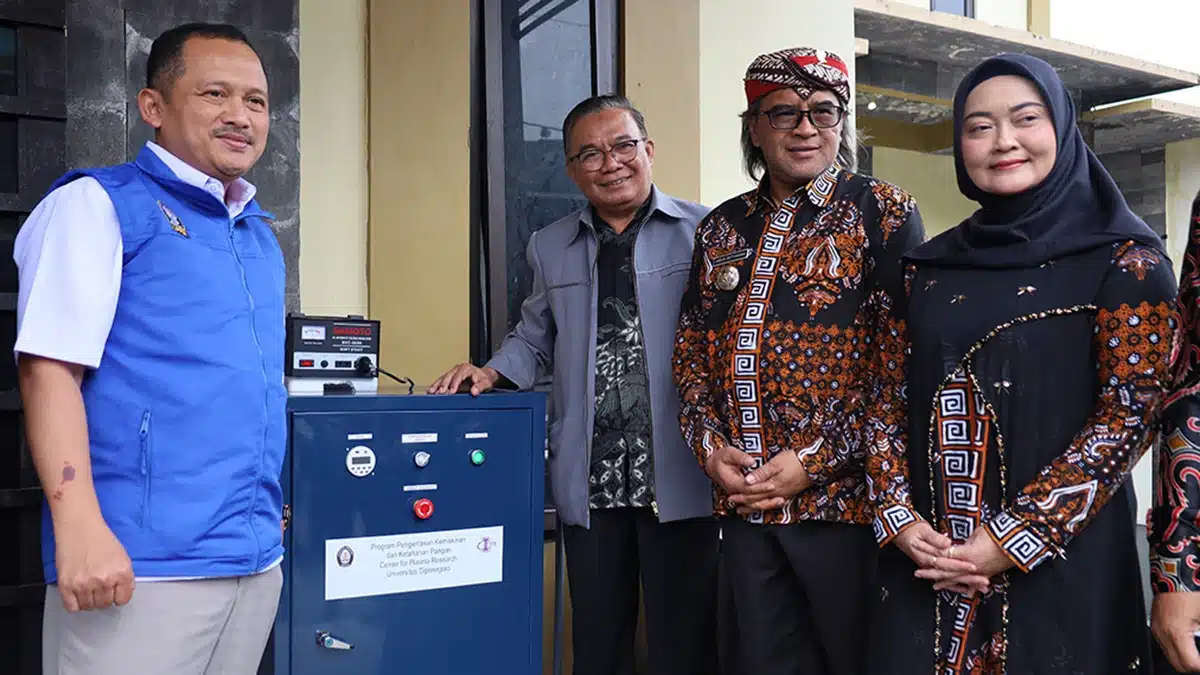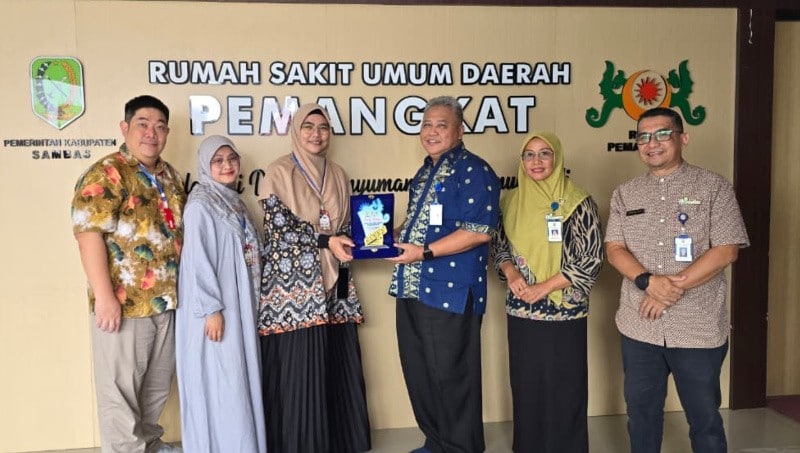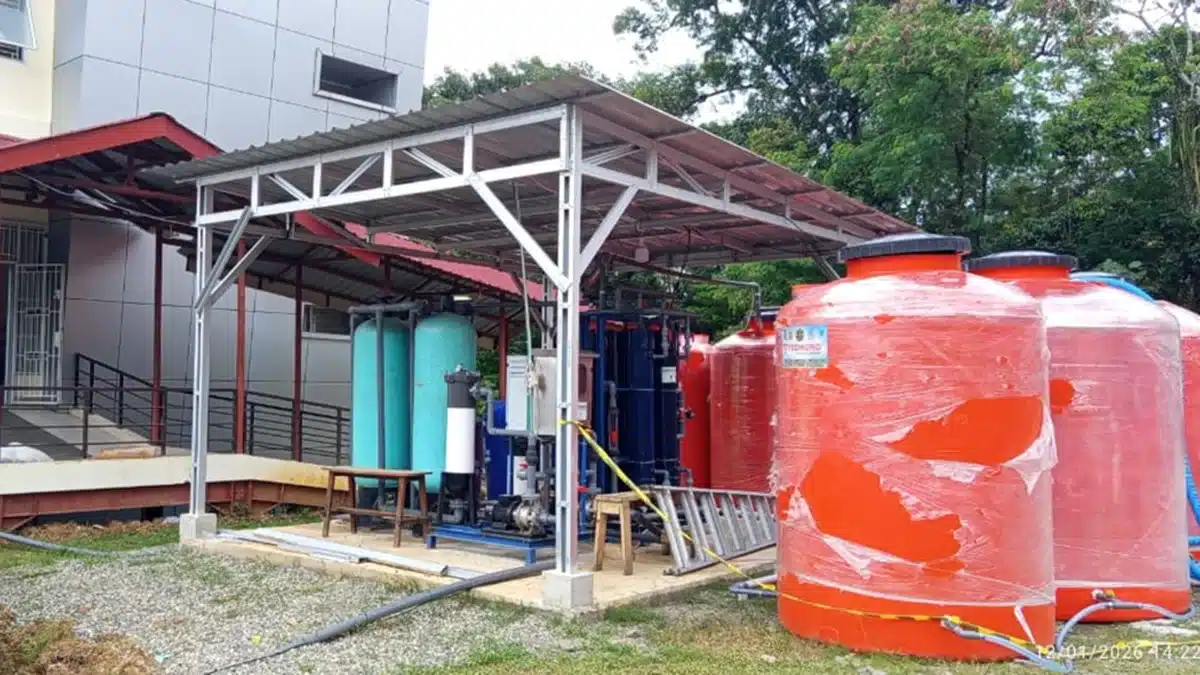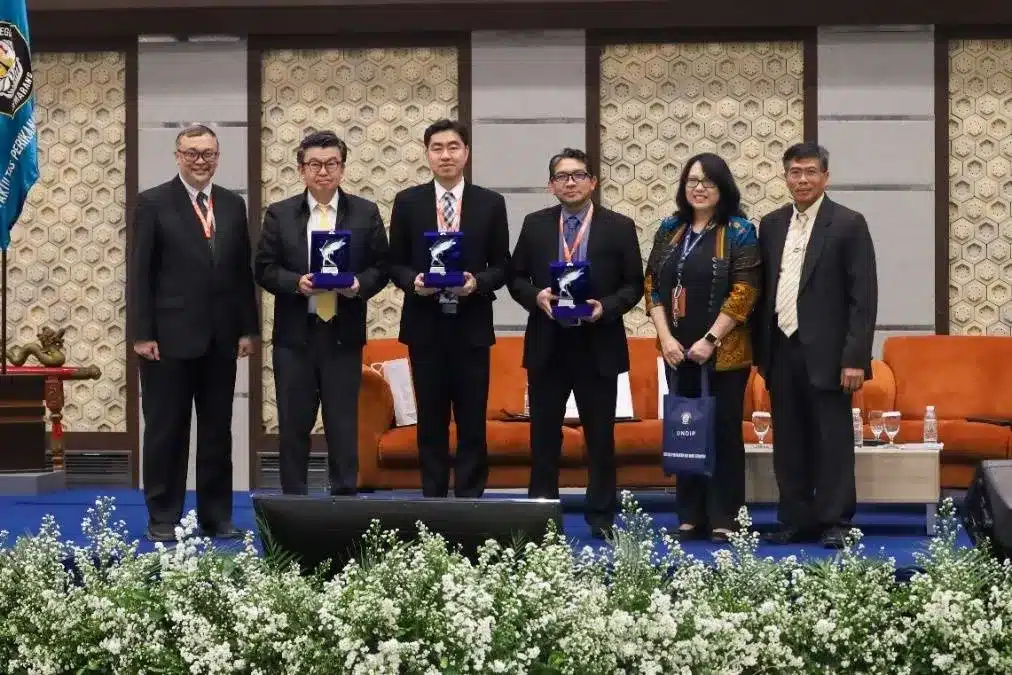UNDIP, Semarang (October 7, 2025) – The Faculty of Fisheries and Marine Science, Universitas Diponegoro (FPIK UNDIP), in collaboration with the ASEAN Fisheries Education Network (ASEAN-FEN) and the Indonesian Association of Oceanologists (ISOI), organized the 13th International Fisheries Symposium (IFS) under the theme “ASEAN Fisheries and Marine Resources for Global Sustainability.” This year, UNDIP served as the host, facilitating the international symposium held at the Muladi Dome, UNDIP Multipurpose Building, from October 6–9, 2025.
A total of 350 marine and fisheries experts from 16 countries participated in IFS 2025. During the Opening Ceremony on the first day (6/10), the event was also attended by rectors from Mindanao State University (Philippines), Laguna State Polytechnic University (Philippines), and National Taiwan Ocean University (Taiwan).
Keynote speakers featured in the Day 1 talk show included Prof. Matsuishi Takashi Fritz, Ph.D. (Hokkaido University, Japan), Dr. Pavarot Noranarttragoon (Department of Fisheries, Thailand), and Assoc. Prof. Dr. Noor Faizul Hadry Bin Nordin (International Islamic University, Malaysia), moderated by Dr. Tita Elfitasari, S.Pi., M.Sc. (Universitas Diponegoro, Indonesia).
Representing the Vice-Rector for Research, Innovation, Collaboration, and Public Communication, Dean of FPIK UNDIP Prof. Agus Trianto, S.T., M.Sc., Ph.D., officially opened the symposium and warmly welcomed all participants. Joined by academic experts in marine and fisheries sciences from across the Asia-Pacific region, IFS 2025 served as a forum to reflect on the challenges and opportunities faced by coastal communities. “As academics, we hold a vital role in safeguarding resources for the future. Through excellent research, we can find solutions for the sustainable management of marine and fisheries resources,” said Prof. Agus.
Chair of ASEAN-FEN, Prof. Ir. Mochammad Amin Alamsjah, M.Si., Ph.D., stated that IFS 2025 acts as a catalyst for strengthening the marine and fisheries industries across ASEAN, covering research topics such as:
- Ocean Health and Biodiversity Conservation
- Ocean Dynamics and Climate Change Impacts on Marine Resources
- Fisheries Resource Management
- Innovation and Sustainability in Capture Fisheries
- Aquaculture and Fisheries Technology
- Fisheries Product Technology: Value Addition, Innovation, and Safety in Fisheries Products
Wiwiet Teguh Taufani, S.Pi., M.Si., Ph.D., Chairperson of IFS 2025, noted that this annual symposium reflects a shared commitment to future generations. Moreover, IFS 2025 provides a valuable networking space for marine and fisheries experts to exchange ideas and experiences.
On the first day of IFS 2025, two winners of the ASEAN-FEN Outstanding Young Fisheries Scientist Award 2025 were announced. Head of the jury, Prof. Dr. Emilia Encarnacion S. Yap (University of the Philippines), presented the awards to Asst. Prof. Dr. Abdul Aziz Jaziri (Universitas Brawijaya) and Assoc. Prof. Dr. Iris Ann G. Borlongan (University of the Philippines Visayas).
The program continued with a talk show session featuring Matsuishi Takashi Fritz, Ph.D., who presented “From Growth to Sustainability: The Future of Capture Fisheries of Southeast Asia.” He explained that since 2018, fishery resource consumption has rapidly increased, yet issues of overfishing and underfishing persist. “Approximately 28% of the world’s fishers come from Southeast Asia due to its coastal geography. Therefore, this region holds significant advantages if marine and fisheries resources are optimally utilized—through monitoring, export control, labor management, human resource development, and attention to marine biodiversity,” said Matsuishi, Ph.D.
Next, Dr. Pavarot Noranarttragoon discussed “New Approaches to Assessing and Managing the Multispecies Fishery in Thai Waters of the Gulf of Thailand.” He explained that Thailand’s fisheries comprise approximately 40% aquaculture (including shrimp, shellfish, and finfish) and 60% capture fisheries. To prevent overexploitation, habitat degradation, pollution, and climate change threats, practices must adhere to the Maximum Sustainable Yield (MSY) principle—a standard limiting the maximum harvestable marine resources while ensuring sustainable population growth.
Assoc. Prof. Dr. Noor Faizul Hadry Bin Nordin then delivered a talk titled “The Empowerment of Community-Driven Stewardship for Sustainable ASEAN Marine Resources.” The concept of Community-Driven Stewardship emphasizes local participation, scientific and technological integration, community empowerment, sense of ownership, and sustainability. “ASEAN nations possess strong cultural identities and rich biodiversity. Our strength lies in our own hands—the coastal communities who live by and grow with the sea,” he concluded.
IFS 2025 continues on its second day (8/10) with more keynote sessions and an Awarding Ceremony. The symposium’s successful implementation represents UNDIP’s tagline of’ Noble and Valuable’ while advancing the Sustainable Development Goals (SDGs) #14 Life Below Water, #13 Climate Action, and #3 Good Health and Well-being. (Public Communication/UNDIP/Titis)
